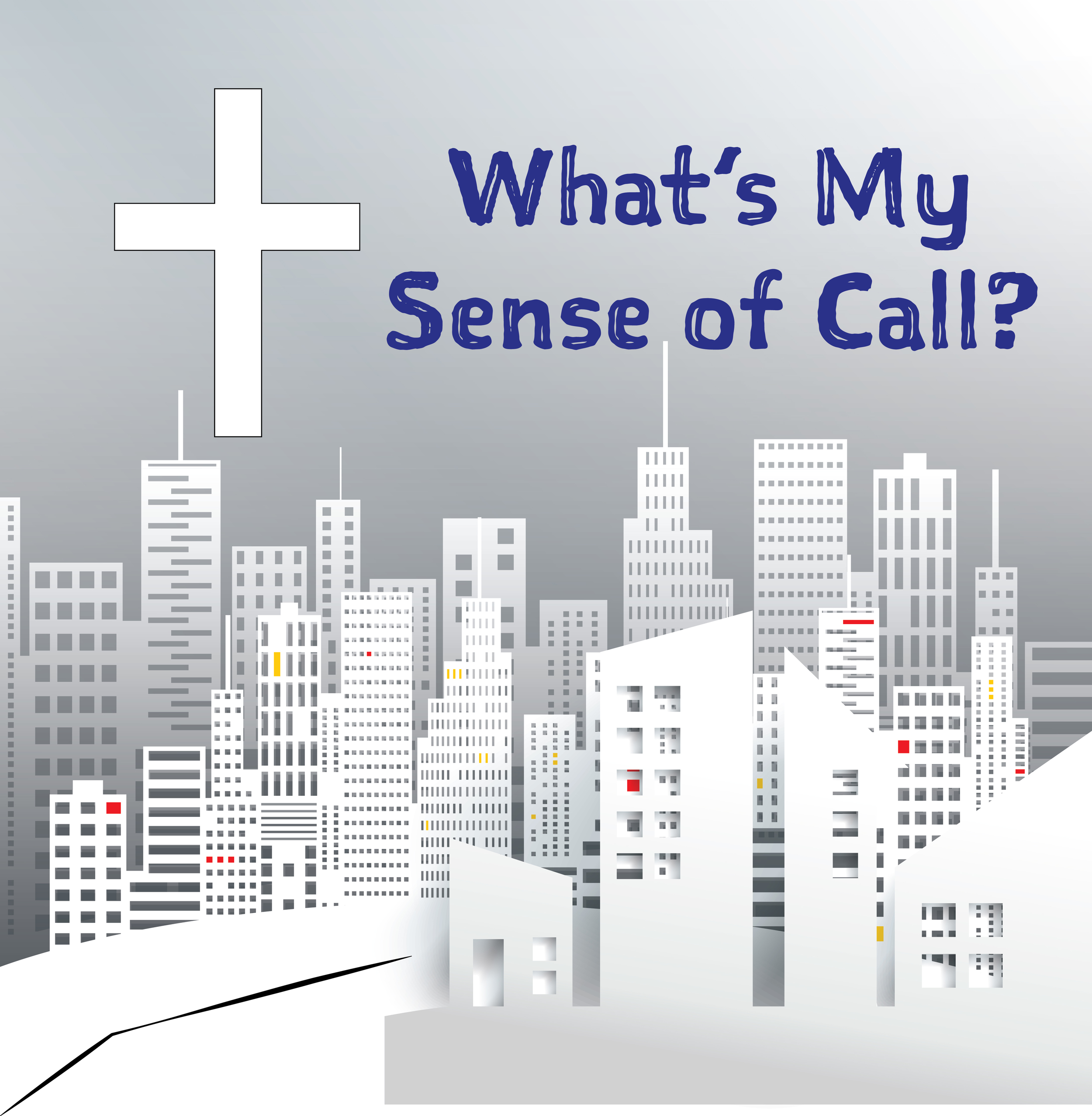What is Your Sense of Call?
Newark Presbytery is the successor of the Presbytery of East Jersey which was organized in 1733 by the Synod of Philadelphia. A few years later, the Presbyteries of East Jersey and Long Island were combined to form the Presbytery of Long Island. In 1808, the Presbytery of New York was divided with the churches in New Jersey becoming the Presbytery of Jersey. In 1824 the Synod of New Jersey divided the Presbytery of Jersey into the Presbytery of Newark and the Presbytery of Elizabeth Town (later Elizabeth). The organization of the Presbytery of Newark took place on November 2, 1824. Happy Birthday, Newark Presbytery!
As congregations and communities of faith, we are in this incredible stream of Spirit-led worship, witness, and mission. In 2013, Newark Presbytery has enthusiastically welcomed more than half a dozen pastoral leaders, followers of Jesus Christ, as candidates and/or teaching elders into new opportunities for ministry. This is an unprecedented blessing!
Newark Presbytery as a council of the Presbyterian Church (U.S.A.) is more than a random aggregation of ministry, mission, buildings, and financial assets. Newark Presbytery is an intentional gathering of Christ-followers, teaching and ruling elders alike, each with uniquely expressed spiritual gifts and competencies that for more than one hundred and eighty-nine years has transformed lives, congregations, communities, and the world.
Newark Presbytery is not a library, though we are a learning community. We are not a financial institution, though we have accrued more than five million dollars in the bank. We are not a church, though we are a collection of leaders and worshipping communities that every day, in a multitude of ways, gather and deploy our gifts to bless others, ordain leaders, call people to faith, serve our communities, and work for the reconciliation of the world. Newark Presbytery represents aligned values, resources, and priorities that are historically-rooted, mindfully-present, and future-directed, as it continually grows and changes to fulfill its purpose and live into God’s emerging future. Like I said, Happy Birthday, Newark Presbytery!
Newark Presbytery has a sense of call which is being nurtured forward through the continuing ministry of our Working Group. Every leader among us, too, has a sense of call. As ministers gather to pray, learn, and grow, our own sense of call deepens, becomes clearer, and we become more energized and effective. When combined together, we can move in the same direction as we are led by the Spirit. Then the entire presbytery can accomplish those “Greater things” Jesus said his disciples would accomplish.
Our Sense of Call is Essential What is your sense of call?, your deep, authentic, core purpose as you follow Jesus Christ. I’d like to share a snapshot of my developing sense of call.
My dad was a Presbyterian elder, and with my mom, we went to church. I attended a Missouri Synod Lutheran school. I met Christ, experiencing God’s love in my family, especially resonating with the life of Martin Luther.
“This is how much God loved the world: He gave his Son, his one and only Son. And this is why: so that no one need be destroyed; by believing in him, anyone can have a whole and lasting life. God didn’t go to all the trouble of sending his Son merely to point an accusing finger, telling the world how bad it was. He came to help, to put the world right again (John 3:16-17, The Message).
John 3:16 is likely one of your favorite Scripture texts, as it is mine. "For God so loved the world....” These words, so indelibly implanted on our memory, are heard differently in many contexts and communities, but for me, is realized through the different phases of my life.
My sense of call has been realized this verse in reverse. So it reads this way:
Have eternal life;
Do not perish;
Believe in Jesus;
God gave Jesus;
Loved the world;
For God.
In seminary I'd read, “For God so loved the world,” but I think I experienced the text as,“For God so loved the church.” How else can you explain that despite exciting vacation Bible schools, acts of kindness extending shelter, food, or clothing, and hundreds of other community ministries, our best efforts can appear disproportionately invested in the building and the people gathered there inside the walls? I have grown to more consistently resonate with the true text, "For God so loved the world." How can the church do that?
Since my experience of John 3:16 is now resonating the original sequence of words in the text, For God... I have tried to think more deeply about how I now characterize Jesus’ mission if I paid attention to the outside impact of Jesus' ministry. (You can apply this analysis to almost in any of the writings in the New Testament, if you're open to it.)
Using the Gospel of John as a reference point, consider how:
Jesus’ incarnation disrupted the entire planet when the Word, became flesh and moved into our neighborhood" (Jn. I, 14). Jesus disrupted our economy when he overturned the moneychangers’ tables (Jn. II). He disrupted faith when he told Nicodemus he had to be born anew (Jn. III). Jesus disrupted gender and race (Jn. IV) with the woman at the well. Jesus disrupted justice and resources (Jn. V, VI), education, morality, and even disrupted health care (Jn. VII, VIII, IX). Jesus forever disrupted life and death (Jn. X), our identity (Jn. XI-XVII), our expectations (Jn. XVIII-XX) and ultimately our destiny (Jn. XI). Jesus completely disrupted what (only) appeared to be working, but in truth, disrupted what was not working. It was beyond repair, and unable to give life in abundance that Jesus was offering to all.
One core aspect of Jesus' salvation story might be told this way: self-serving devotees of entrenched, incumbent leadership were targeted for transformational change. Instead of sustaining equilibrium, Jesus disrupted life on a grand scale.
A poem older than Newark Presbytery urged attention to the whole mission (purpose, objective) by noticing the impact of even the seemingly smallest of the component parts. It reads:
For want of a nail, the shoe was lost.
For want of a shoe, the horse was lost.
For want of a horse, the rider was lost.
For want of a rider, the battle was lost.
For want of a battle, the kingdom was lost,
And all for the want of a horseshoe nail.
Benjamin Franklin, one of many authors who used this poem, wanted his readers to understand that the mission of the King was to get the message delivered. Every component part if essential, but the horseshoe nail, the horse, even the rider, was not the mission. The mission was to deliver the message of the King. The poem tells the story of how critically important the effectiveness of the means of transportation, the rider, and the roads were to achieve the mission. Fundamentally, the poem is about making sure the networks are working, and every part is essential, even the nail.
Ministries of Improvement The best and brightest leaders, candidates, and ministers in the church are usually put to work on optimization, and asked to improve the way things work. Its good. Its all good. We ask our leaders: ‘Can you make it better, faster, and stronger?’ They will then go forward and solve the inefficiencies, address the problems, and fix what's broken, and that’s where 99% of most energy is invested. As a leader, as a congregation, as a presbytery, we do a lot of improving. (Again, its all good.) But, at some point you run out of room to improve things, and that’s when you have step aside and stop asking, Can we make it better, and instead have the courage to ask, Can we make it different?
Is church ministry (when looked at as a whole, essentially unchanged since November 2, 1824) really good enough? That is, are the faithful, constant, and good improvements, actually over-improving what does not directly add value to the actual impact on our sense of call, our mission, our spiritual service in the Reformed tradition in the name of Jesus Christ?
Have we over-served those in our congregation, our faithful members and participants, by improving ministry features that actually, (when looked at from a community and world impact point of view), don't actually matter all that much?
Have we out-sized our buildings, to which we have become emotionally attached? Have we hoarded buildings on the ground and dollars in the bank instead of also deploying new spiritual ministries?
Perhaps we have clung too long to what we are familiar with, and our comfortable patterns of ministry have impaired the benefits of our spiritual disciplines that can empower courageous new initiatives. Our own historical documents tell Amazing Grace-endued stories since 1824 when we as a presbytery started new congregations, risked changing the world in the name of Jesus Christ, re-started congregations, and initiated new worshipping and witnessing communities in many languages and addressed new immigrant and ethnic ministries. Newark Presbytery has not done these often difficult tasks not just make the world better, but create a new world in the name of Jesus Christ.
2014, and beyond, can become more like 1824 with growing spiritual energy and sense of call satisfaction.
Maybe your sense of call is morphing like mine is. My Call is not just about churches, but in learning about and building new spiritual networks that connect our communities and neighbors to faith in Jesus Christ. How can our worshipping congregations become spiritual highways leading people to Christ?
We have the resources.
What we are lacking are clearer priorities and values as a presbytery so that we can glorify God with the Greater Things, Jesus spoke about (John 14:12).
My sense of call is focused on building every congregation's unique ministries and spiritual networks as I lead and serve as General Presbyter.
I'm paying attention to partnerships across our presbytery and in our communities.
I'm inviting conversations about possibilities for a different future, as I meet with ministers, sessions, and congregations.
God creates. Jesus disrupts. The Spirit connects. My sense of call is about spiritual connections and networking.
To me, its simple, when driven by a sense of call.



